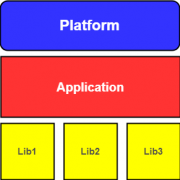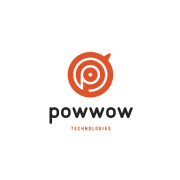Frameworks vs Libraries for Enterprise Software
Behind every enterprise software solution we develop, lies a series of carefully selected and closely orchestrated technologies and systems. In our line of work the use of frameworks are fundamental to the solutions we deliver for enterprise clients in helping them stay ahead.
The pace of technological change is now faster than ever and the businesses we work with require solutions that can stand the test of time and keep up with software and security innovations.
For this reason, the ability of the enterprise application to adapt, change and grow over time is paramount to our clients. This is usually the first question we are asked when starting a new project, and a valid question at that, as it relates to the building blocks behind the structure of the application in development.
In order for one to grasp an understanding of what frameworks are however and the value they offer, one must first understand what a library is.
Libraries
 Libraries are collections of predefined codes that developers can call on to carry out specific and well defined tasks and actions. Developers do not necessarily need to know anything about the commands contained within the library – they merely call on the library and it carries out its function. In simple terms, a library is a file that contains useful code that can be reused over and over again.
Libraries are collections of predefined codes that developers can call on to carry out specific and well defined tasks and actions. Developers do not necessarily need to know anything about the commands contained within the library – they merely call on the library and it carries out its function. In simple terms, a library is a file that contains useful code that can be reused over and over again.
Frameworks
 Frameworks on the other hand exist to provide a boilerplate base to build applications on. A good foundation that just like libraries makes the job of the developer much easier. Developers however cannot merely call on a framework to carry out a function. They must learn the rules of the framework and build the application according to these rules. The result is a framework that controls the flow of an application by calling on the developer’s very own application code that they have written into the framework itself.
Frameworks on the other hand exist to provide a boilerplate base to build applications on. A good foundation that just like libraries makes the job of the developer much easier. Developers however cannot merely call on a framework to carry out a function. They must learn the rules of the framework and build the application according to these rules. The result is a framework that controls the flow of an application by calling on the developer’s very own application code that they have written into the framework itself.
So why should we use frameworks instead of libraries?
Security
With good development practice comes a responsibility to ensure security is maintained and even improved during the lifecycle of the application. Developers worth their salt know that security is a key component of any enterprise software application.
When data is compromised, it is often because some standard security measures have been overlooked. Good frameworks have security baked in at their core and in general are much better at protecting the application.
In comparison, while libraries might simplify the coding process, their use comes with significant risk as developers become more and more reliant on an ever growing pool of libraries without sufficient knowledge of the code contained within. This can ultimately lead to security flaws and vulnerabilities in the application or system.
Testing
From unit testing to acceptance testing, it’s vitally important to test the various different layers of an application at key intervals as the application moves through development towards release.
Much of the testing of a framework application in development can be automated. As frameworks are based around a set of rules, the application that results is an application that requires lower maintenance and minimal manual intervention.
We can test a framework application much more efficiently which results in a higher return on investment for the client. Data collected at the framework testing stage can also provide developers with a good indication of the application’s reliability and quality, providing peace of mind for both the client and development team.
Evolution
Enterprise applications usually evolve and grow over time in line with strategic business decisions and technological advances. Such applications require a solid framework so that they remain robust and secure in a world of constant change.
We practice extensibile design – where the implementation of an application will always take future growth into consideration. The system design choice at the outset when planning an enterprise application will dramatically influence the future evolution of the application. In every project we work on we strive to build and deliver a system that provides for change with minimal impact to existing operations.
Learning & Development
Another advantage of frameworks over libraries is that frameworks follow a unified programming model and design pattern. In line with these models, problems can be solved with relative ease in a structured way as the development process is split into well defined and proven phases from business modelling right through to deployment. When working with frameworks it is easier for the developer to do the right thing as the framework changes code on a structural level so the application grows more predictably.
Using a framework first approach means that those involved in the project are not required to have the knowledge of multiple individual libraries in order to execute complex results and functions. Good frameworks are well documented, so that developers can learn and understand them with relative ease.
Teamwork
Effective collaboration in any development team is critical to meeting goals and delivering a reliable application to the client. While not an impossible feat, it’s a struggle for many teams.
Choosing between a library or framework approach also depends on the organisational structure of the development team that work together on a given project. While the initial learning curve is high for a development team when employing a framework approach, development is much faster as most of the work that follows is then automated, under the watchful eye of that team.
Teams can get frustrated where there is little or no apparent structure and or guidance when building a great solution. A framework brings structure to an otherwise diverse and multi-dimensional team. Well defined frameworks similarly allow senior and junior developers to work together in harmony in an environment where open dialogue is welcome and where constructive feedback solidifies trust. This model also applies to large complex projects involving multiple teams across many departments.

We believe Frameworks are fundamental to delivering and maintaining robust and extensible Enterprise Software

Leave a Reply
Want to join the discussion?Feel free to contribute!